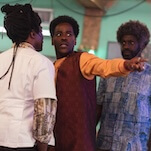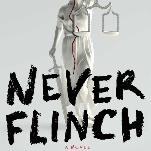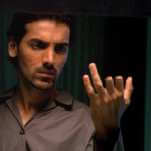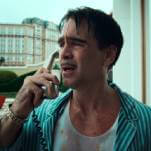Pretty Problems explores just how taxing the rich can be
The financially needy poor and the emotionally needy wealthy collide in writer-director Kestrin Pantera's satire
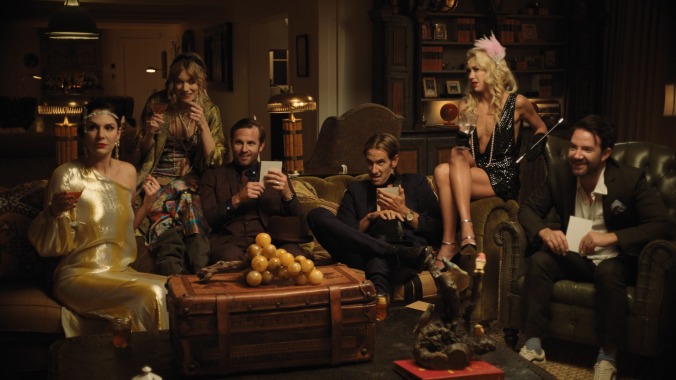
“That’s a murder house. That’s a house where murder happens,” says Jack (Michael Tennant, who also scripted), upon seeing the modernist, mid-vineyard fortress where he and his wife were invited for the weekend by a brand new rich friend. There’s no cell phone signal, no internet, and said friend Cat (J.J. Nolan) already seems quite erratic … not to mention, scarily knowledgeable about Jack’s background. But while literal murder isn’t in the cards, a subtler form of torment most definitely is. Jack and his wife Lindsay (Britt Rentschler, also co-writer), are about to have their entire lives casually and cruelly manipulated by people so privileged they barely know or care that they’re doing so.
We first meet Jack and Lindsay during sex that’s so bad that they stop mid-coitus and finish themselves off separately later. He’s on probation for assaulting a guy who insulted her; she works at an overpriced clothing store that barely sells anything. When Cat breezes in one day, striking up a conversation and buying almost everything in the store to shut Lindsay’s boss up, it’s an extreme and sudden act of generosity. So when she extends the weekend invite, of course Lindsay takes it. There’s one other couple coming, whom Cat claims to hate–pompous heir Kerry (Alex Klein) and his extremely drunken actress-model lover Carrie (Charlotte Ubben). Cat’s husband Matt (Graham Outerbridge) is a self-made tech bro, but seems reasonably cool in spite of it.
Anyone who has ever hung out with acquaintances from a higher social or economic status will recognize the dynamic that ensues. The rich folks quickly grow bored with one activity, rush along to the next thing, expecting everyone to adapt to their pacing (regardless of the cost), and consume lots of controlled substances to maintain their own enthusiasm. Servants and hucksters may scam them out of payments for pure nonsense, like a shamanic cleansing ritual that simply quotes Four Non-Blondes and Spice Girls lyrics, but the hosts are on a level of oblivion where they can’t tell “what’s going on,” nor would they care about cost or depth if they did.
Anyone who has not known such experiences, on the other hand, may recognize a touch of F. Scott Fitzgerald’s skewering of jazz-age decadence, updated for the time of the crypto-bro. Were he alive today, The Great Gatsby author might be all too familiar with these types, and all too disappointed we’ve learned little in a century. The humor in Pretty Problems isn’t often laugh-out-loud funny, but the observational satire is astute: it highlights how charity may be a performative act for donors, but that makes the need no less urgent for recipients, while acknowledging how far wealth distances some people from reality.














